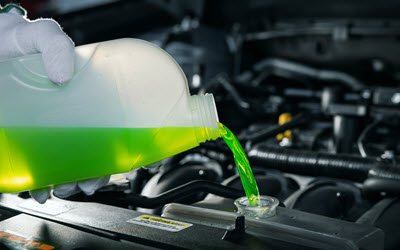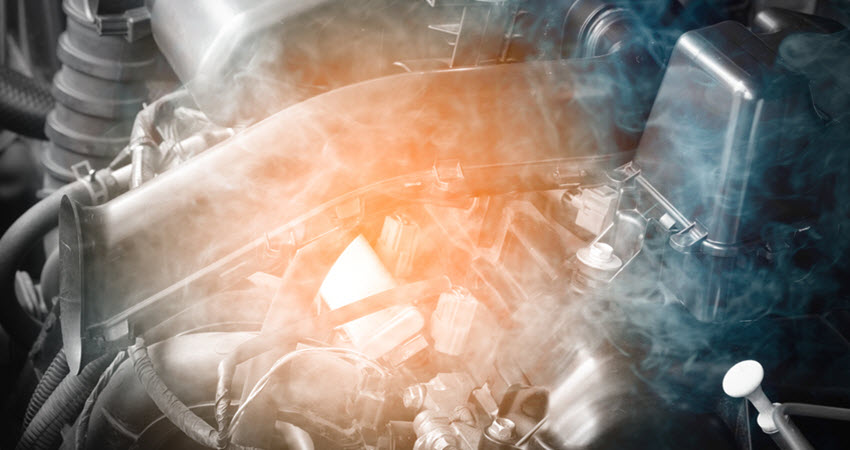Overheating of the engine is one of the most common symptoms of a problem in a car, including Volkswagens. When your engine is overheated, it can cause great damage and this will leave you with no option but to seek the services of a mechanic. Learning more about the causes of engine overheating is beneficial in avoiding it and maintaining your Volkswagen automobile. Below are the major causes of Volkswagen overheating and what you can do if and when it occurs.
Reasons Your Volkswagen Overheats And What You Should Do
Low Coolant Levels
The overheating of VW engines is one of the most frequently occurring problems, and one of the causes of this issue is low coolant levels. Coolant or antifreeze helps in controlling the temperature of the engine and keeping it where it should be. It receives heat from the engine and passes it to the air through the radiator. If the coolant level is low, then there is not enough fluid to take the heat as well as transfer it thereby causing the engine to overheat. This problem can be avoided by frequently checking and ensuring that the coolant level is correct.
Driving Conditions
Other conditions like driving the car in hot weather, towing a trailer or any other heavy object, or driving the car up a steep slope will place extra demands on the engine as well as the cooling system. Under these circumstances, the engine becomes hot and the cooling system has to struggle to cool the engine. Regular checks on your cooling system and avoiding aggressive driving during hot weather can go a long way in avoiding an overheating problem.
Radiator Problems
The radiator serves the function of expelling heat from the coolant. If the radiator is blocked with dirt, debris, or rust then it will not be able to dissipate the heat from the coolant, and this results in overheating. A bad or faulty radiator fan also hampers the proper circulation of cool air in your VW. Cleaning the radiator and checking the fan often will help keep the engine cool as required during its operation.
Broken or Loose Belts
Belts in your engine work to power devices such as the water pump and the radiator fan. If a belt breaks or becomes loose, these components cannot work efficiently, resulting in the poor circulation of the coolant and perhaps overheating. This problem can be avoided if belts are checked and replaced before they get damaged or when they start to wear out.
Presence of Air in the Cooling System
The presence of air bubbles within the cooling system hinders the circulation of the coolant and its efficiency to absorb and release heat. These bubbles may be as a result of a poor filling of the coolant, a blown head gasket, or a damaged radiator cap. It is recommended to bleed the cooling system to get rid of excess air bubbles and to inspect all related parts to see that they are in good condition to allow proper circulation of the coolant.
Head Gasket Failure
The head gasket closes the space known as the combustion chambers in the engine and keeps the coolants from getting to those chambers. Coolant leakage into the combustion chamber or oil passages due to a blown head gasket increases the chances of the car overheating. Some of the symptoms that can indicate a blown head gasket are white exhaust smoke, oily substance, and engine overheating. Replacing the blown head gasket is the only solution.
Come To The Most Trusted Repair Shop In Oakland
At Germany’s Best Inc., we have  been the leading auto repair and maintenance shop for European car owners in Oakland, CA for more than a quarter of a century. We have mechanics that are ASE certified and our staff is always willing to make your experience in our garage a pleasant one.
been the leading auto repair and maintenance shop for European car owners in Oakland, CA for more than a quarter of a century. We have mechanics that are ASE certified and our staff is always willing to make your experience in our garage a pleasant one.
If you observe symptoms of overheating in your Volkswagen, you can bring it to us and our technicians will determine the source of the problem. At Germany’s Best Inc., the well-being of your vehicle and your satisfaction are our main concerns and we are glad to provide our services to VW owners from Berkeley, Emeryville, and Piedmont, CA. Visit our workshop or reach us through the phone at 510-658-8948.






 Mon – Fri: 8:00 AM to 5:00 PM
Mon – Fri: 8:00 AM to 5:00 PM 5291 College Avenue in Oakland, CA 94618
5291 College Avenue in Oakland, CA 94618 510-658-8948
510-658-8948